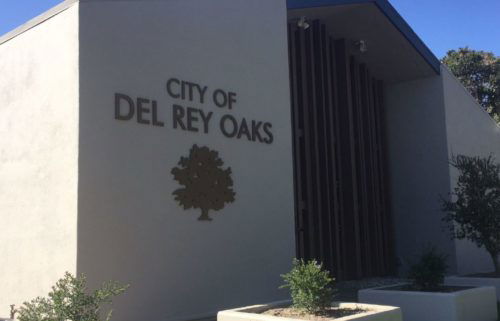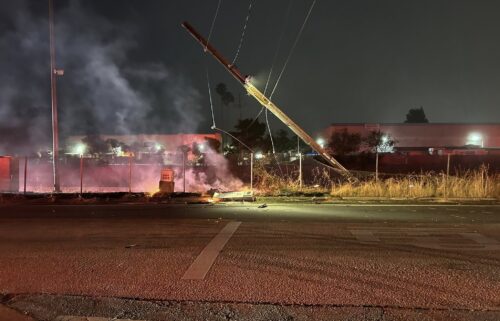NEW CA LAW: Don’t trash food scraps, throw them in the green bins
MONTEREY COUNTY, Calif. (KION-TV) Banana peels, leftover veggies and other food scraps are no longer allowed in most trash bins.
Thanks to Senate Bill 1383, California cities now have to compost their food waste. Starting January 1, cities and counties are required to have programs that collect waste for composting, however, some rural areas where wild animals are a problem are also exempt from the law.
The goal is to turn food scraps into compost or energy, rather than let them decay and emit methane, a gas many times more potent than carbon. The hope is to reduce organic waste in California landfills by 75% in the next 5 years.
"This is really a climate law, and it's intended to reduce methane gas that is generated when organics end up in the landfill," said Zoë Shoats, director of communications for the Monterey Regional Waste Management District. "The food scraps are composted in windrows for between 90 and 120 days. And they generate this wonderful material compost that can be applied to various landscaping projects, horticulture and even agriculture."
In Monterey County, residents can now throw their food craps directly into their green yard waste bin. But many still have questions about the program.
What goes into the food waste bin?
- Cooked meat, fish, bones, and shells
- Cheese and other solid dairy products
- Bread, pasta, pastry, and other grains
- Coffee grounds
- Fruits and vegetables.
All items must be unpackaged, so no plates, plastic bags or other non-food-based items can be added. Liquids, oils, grease and raw meat also are not allowed.
I don't have a green bin. How can I get one?
You have to reach out directly to your waste hauler to receive a green bin if you don't have one already. They will be delivered only upon request. But many cities, like Salinas, already require residents to have the green bins. Shoats says the cost of the blue and green recycling bins should be included with your regular trash fees.
I live in an aparment or condo complex. Do I still sort my food waste?
Homes, apartment/condo complexes and businesses will all be required to follow the food waste law. Complexes can also request green yard waste dumpsters to add to their current trash. Shoats says any approved garbage rate increases will be in the single digits.
What about the smell?
Cities and counties will be giving out a limited number of aerated countertop bins that should help with any smell.
"We're really encouraging people to use these bins without a liner. They're really easy to rinse out or wash out and then reuse again. And if you have a bowl in the back of your cabinet, that's perfect to use. You can use what you have instead of something new," said Shoats.
She says you can also keep them in your fridge or freezer to slow down the rate of decomposition, and she recommends taking the compost out every three days.
What happens if I don't participate?
There will be a two-year education period before any decisions on enforcement or penalties will be finalized and implemented.
"There won't be any enforcement until January of 2024. And that program is yet to be determined," said Shoats. "But there will be checking to make sure that the proper contents are going into the correct bins."
Right now, she says they're focusing on encouraging people to start recycling their food waste.





